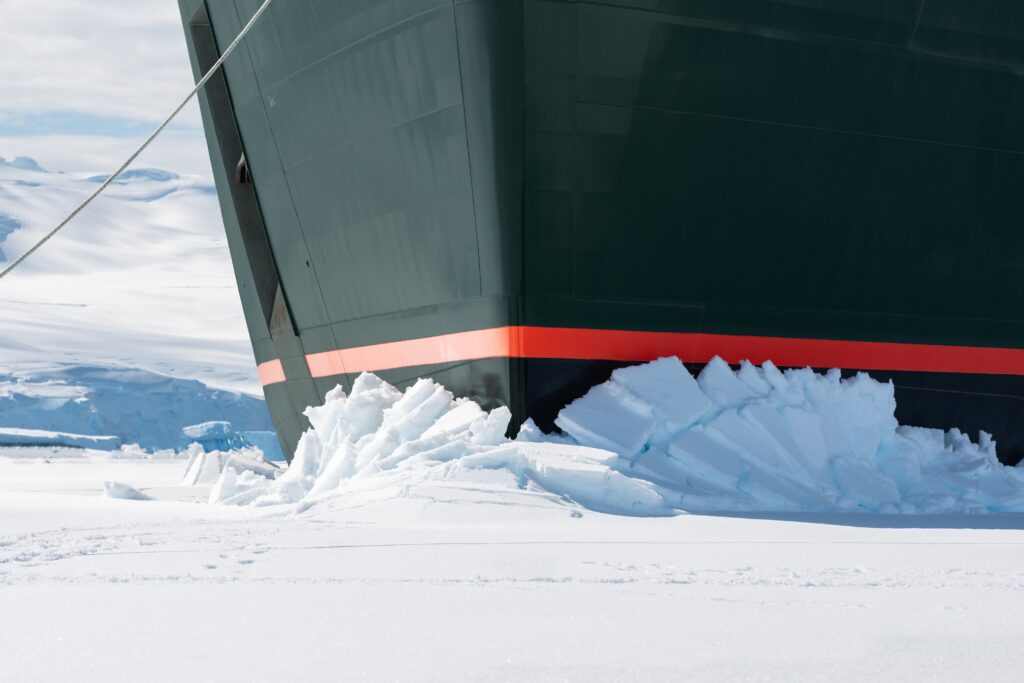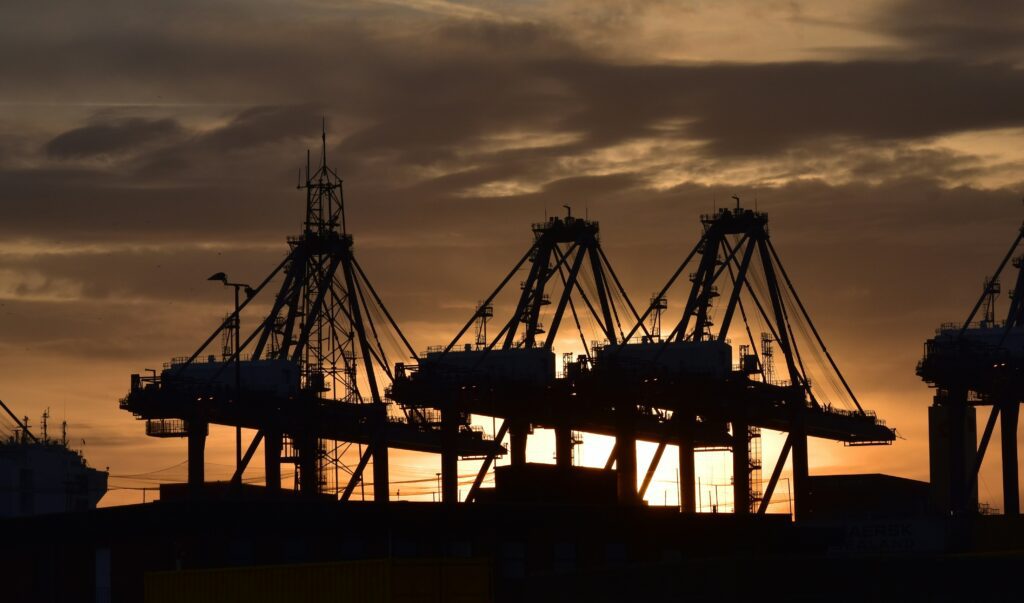Photo Credit: Matthew Cassidy
This article is a sponsored feature, produced in partnership with EC Strategies.
Chinese shipping company Sea Legend has this week inaugurate the world’s first direct container service from East Asia to Europe via the Northern Sea Route (NSR). The maiden vessel, Istanbul Bridge, is due to depart Ningbo-Zhoushan Port on 24 September, arriving in Felixstowe by 10 October. The journey time is projected at just 18 days – a dramatic reduction from the 40 days required for conventional voyages around the Cape of Good Hope.
Boost for British ports and supply chains
For the UK, the announcement signals a potential reshaping of its trading landscape. Felixstowe – the country’s busiest container port, handling around 40 per cent of national container traffic – stands to gain both commercially and strategically from its role as the route’s first European stop.
Shorter shipping times could give British importers faster access to high-value Chinese goods, including electronics, textiles and industrial components, while exporters could see their products reach Asian markets with far greater speed. The port authority in Ningbo projects that carbon emissions will also be cut by roughly 50 per cent, aligning with Britain’s broader decarbonisation and Net Zero targets.
“Securing Felixstowe as the entry point to Europe for this route underlines the UK’s continuing importance as a trade destination,” one logistics analyst said. “It is not just about quicker delivery – it is about anchoring Britain into emerging supply chains at a time when the world economy is fragmenting.”
Strategic resilience after Brexit
Since leaving the European Union, Britain has sought to reconfigure its trading relationships and reinforce global connectivity. The Arctic route could help deliver on these ambitions by offering an alternative to the congested Suez Canal and volatile southern shipping lanes.
The Red Sea crisis of 2023, when Houthi attacks forced shipping diversions around Africa, underlined the fragility of maritime supply lines. At the height of the disruption, British retailers and manufacturers reported sharp delays, with empty shelves and factory slowdowns. A northern corridor to Asia, therefore, represents a form of insurance against future shocks.
This diversification fits with the UK’s stated ambition to become more “trade resilient”. Policy advisers have pointed out that securing reliable access to goods is just as vital as negotiating new trade deals.
Geopolitical and environmental considerations
Britain is not a polar power, but the development of Arctic shipping lanes is of growing interest to UK policymakers. The Foreign, Commonwealth and Development Office has highlighted the need for the UK to play a constructive role in Arctic governance, balancing commercial opportunity with environmental stewardship.

There are clear risks. Melting ice has made the NSR seasonally viable, yet scientists warn that increased traffic threatens fragile ecosystems and marine life. Search-and-rescue infrastructure along the corridor remains limited. Insurers may attach a premium to voyages until safety frameworks mature.
At the same time, Britain could use its influence to push for high standards of environmental protection and transparent regulation, ensuring that commercial gains do not come at the expense of sustainability.
Economic ripple effects
If the route proves reliable, it could generate wider economic benefits for the UK:
- Competitiveness for exporters: British goods, from pharmaceuticals to luxury items, could reach Asian markets with quicker turnaround times, enhancing competitiveness.
- Job creation: Increased throughput at Felixstowe and associated logistics hubs could sustain and expand employment in shipping, freight forwarding and port services.
- Supply chain integration: UK firms might gain greater confidence in just-in-time production models if the Arctic corridor offers consistent delivery windows.
Some observers even suggest that the new route could encourage greater investment into Britain’s freight and logistics infrastructure, reinforcing its position as a European gateway.
Arctic Shipping Test
Sea Legend’s inaugural voyage will be closely watched not only in Beijing but also in London and Brussels. If the Istanbul Bridge arrives on schedule, the case for scaling up services will strengthen.
For Britain, the immediate significance lies less in the tonnage of goods than in the symbolism: a reminder that, despite global competition, the UK remains a critical trading hub between East and West.
As one maritime consultant put it: “The politics of trade are shifting north. If Felixstowe anchors this Arctic route, Britain can carve itself a role in the next chapter of global shipping.”
The UK economy stands to benefit from faster, more secure links to Asia, provided the risks of Arctic navigation are managed. If this experimental service proves viable, it could position Britain at the forefront of a new maritime era – one where Arctic waters shorten the distance between East and West.
Politics UK occasionally works with partners on sponsored content. This article has been produced as advertorial.





